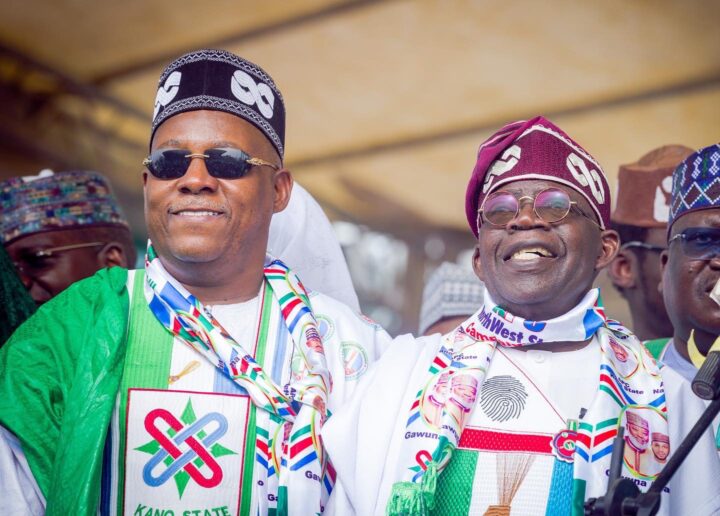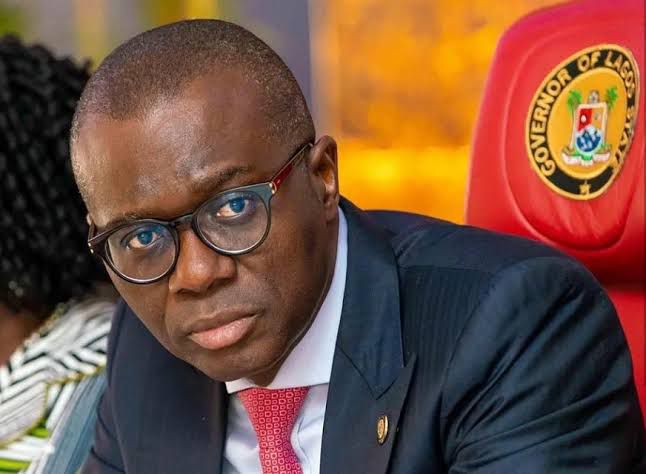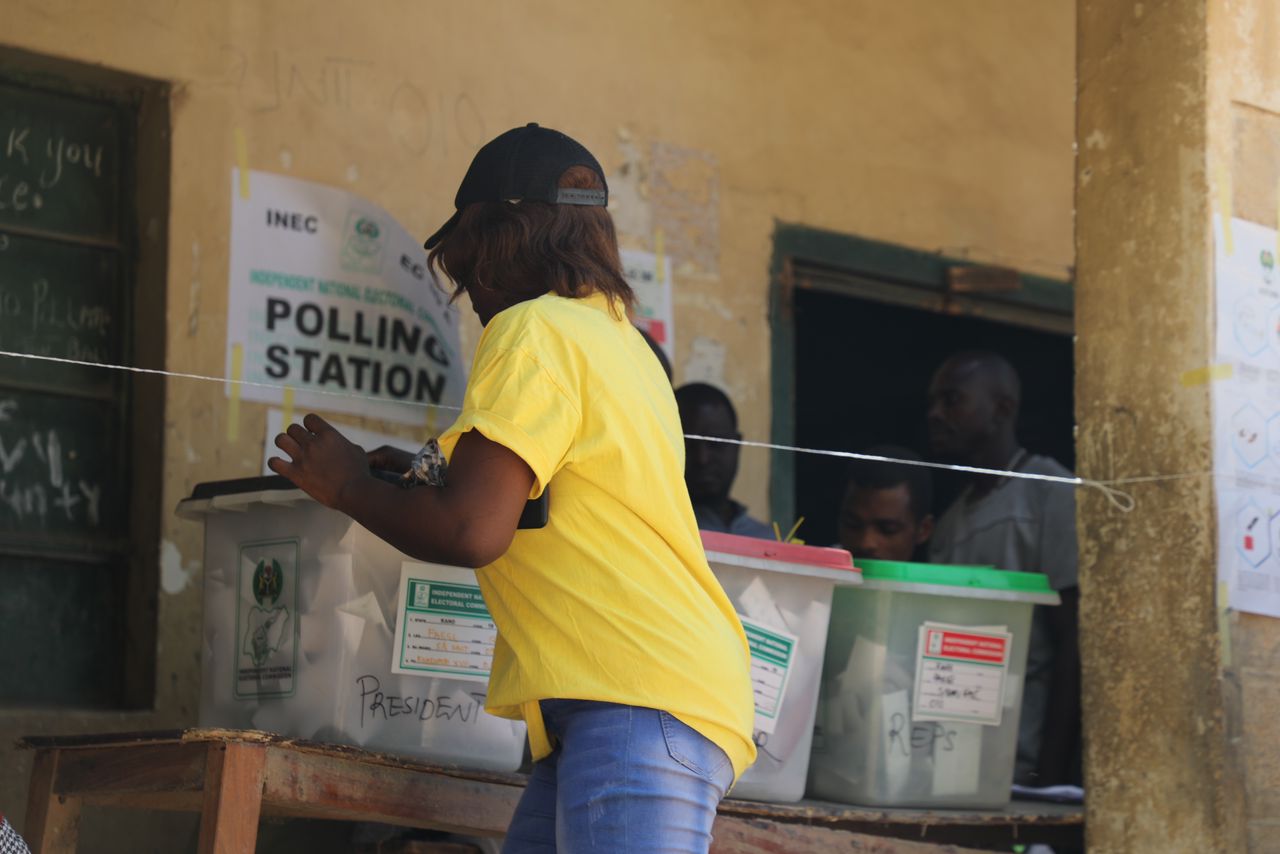First, may I take this opportunity to congratulate president-designate Mr Kashim Shettima on his election victory and wish him well as he governs Nigeria for the next 8 years. May I also congratulate his running mate Mr Ahmed Tinubu, on becoming the next King of Nigeria for, well who knows how long. Both men have what they have always wanted in a deal stitched up well before the elections began.
Mr Tinubu – where are my manners? – Mr Alhaji, Jagaban, Asiwaju Ahmed Bola Tinubu wanted to be King of Nigeria and the presidency was the way to the throne. Having been a kingmaker for so long he sought not power but the kingship. He had always had power, – power behind the throne – but he wanted something else, a crowning glory that would cement his name in history. He made this point himself in an ill-fated declaration, during an ill-fated public performance when he implored his supporters to never let a scenario happen where his name is but a footnote in history. Or, to put it another way: please do not let me be thrown on the scrapheap of history. Having wielded so much power in both Lagos and national politics and amassed so much wealth that he knows what to do with, the next stage is a coronation. Even if it for a day, it matters that his CV and epitaph must read: Bola Ahmed Tinubu: President of Nigeria from so and to so dates. Then he can rest easy.
This followed the most embarrassing of public performances, when he gave as the reason for his pursuit of the presidency, that: it is my turn, he said. Nobody in the history of world politics has ever run for the highest office in any land on such personal vain-glorious reason. Only monarchs run based on lines of succession or what might be colloquially described as turn-by-turn. A new low was reached in the annals of presidential quests and the reasons for that most noble of aspirations.
Shettima on the other hand, seeks power. He needs power to prosecute his agenda whatever that agenda is. So, the deal is that Tinubu be head of state or king while Shettima be president. Although outwardly it seems Tinubu is president. Don’t be fooled. You’ve got Shettima for the next 8 years baring any changes.
Advertisement
Between 1960 and 1966, the roles of the head of state and prime minister were split. Sir Alhaji Abubaker Tafewa Balewa – a man whose shoes the current crop of politicians could hardly lace – was the prime minister and in whom the real power lay, while Dr. Nnamdi Azikiwe – a man whose glasses this bunch could hardly wipe – was the president and the head of state. But the current constitutional arrangement has merged both offices as well as the roles, where the commander in chief of the armed forces is also the man – always a man – who threads the red carpets. But we can split them once more in the sense that Shettima becomes the commander-in-chief of the armed forces while Tinubu merely threads the red carpets as titular head. This was the deal that was stitched up even before a single vote was cast in an election the result of which was known before INEC began registering voters.
Just like the three witches upon the heath, prancing around the cauldron, as they sited Macbeth and his army strolling back from the war predicted that Macbeth would be king. And so, it was. Tinubu is the Macbeth and Buhari is the Duncan in this tale, while Shettima is a son of Banquo. But this was no ‘supernatural soliciting’ since we mere mortals had predicted this was the destination of the Nigerian elections. The omens were strong, the clouds had been gathering, thick and heavy and blown by ill-winds.
So, Nigerians were sent to the polls to perform their rights as citizens and their civic duty of electing a president of their choice. In the baking sun they queued to register to vote and when it got dark, they waited to cast their votes. But it was all a charade, all a political theatre. But of course, the biggest national delusion of all is that Nigerians are citizens when they are not. They are not citizens because citizens have rights, rights that the state must respect the violation of which is legally enforceable. But they hold no such rights of citizenship. Instead, they are subjects in every way. Subjects are little better than slaves, holding little or no rights since they are subject to the diktat, the whims, the pleasure, the caprice and the impositions of the leaders. Whatever the leaders say, whatever the powers that be, will goes. This is the realm of domestic colony, with indigenous colonial masters who ride roughshod over the people they are meant to lead.
Advertisement
These leaders care not a single jot about the people, not even about their supporters who do their bidding. These supporters will now return to their dreary, miserable wretched lives in search of where the next will come from. These useful idiots would wonder the streets in search of a job, in search of accommodation, in search of a hospital that would treat their pathologies; but they will find no answers to their problems from the very people they have helped to install into power. They will find the same emptiness wherever they go, that their situation has changed but for the worse. Others may fare a tad better by being thrown crumbs from the master’s table.
But this still leaves millions of Nigerians – the majority – effectively disenfranchised, disaffected, disgruntled and depressed. They will find that nothing has changed only the colour and the names of those in government. They will continue to consume the dangerously polluted air that they have always consumed, experience the constant electricity seizures that have become a permanent feature and the bane of life in Nigeria: a national scandal costing businesses billions of naira in productivity every day. Then there is the security problems
Indeed, every serious national challenge is brushed aside and not discussed at all. The Nigerian pyramid is then stood on its pinhead rather than on its bulk which is why it is tethers precariously.
Part of the problem is that Nigerian politics has become an end in itself rather than a means to an end. It is a game but not of chess. It is a game where the rules are fixed to facilitate a particular outcome. Yet, elections are not merely about electing leaders but about electing leaders to perform certain duties, to fix problems, to show vision, to fulfil the needs of the people. No. Representative democracy in Nigeria is in fact not the representation of the people. Rather it is about factions, sections, regions, religions and ethnicities. Nothing exercises and mobilises the Nigerian collective mind as much as these factors. They will avert their gaze, turn their minds away from poverty – no concern of mine – inadequate healthcare, lack of security, declining education, fragile institutions, unemployment, crime and so forth. Who cares about these challenges? Only few. But throw in ethnicity into the mix and you have a dog with a bone. The red mist descends and the blood boils. So long it is our man in office that is all that matters. Even if he is the least qualified to hold office, we do not care. He is our man in office and that is all that matters.
Advertisement
But no country ever prospered on such basis. It is a recipe for stagnation and even regression. The democratic experiment that began this present republican dispensation in 1999 has seen little to no progress in the lives of the people. Little wonder then that Nigeria is now the world’s poorest country, a title that once belonged to India. But people appear to revel in the status quo, to accept that things will not change. So, let us hail King Tinubu and President Shettima. But while we do so, let us also spare a thought for Nigerian voter whose voice has been muffled at the very moment when his or her voice was meant to be heard the loudest. A sad day for democracy indeed.
Views expressed by contributors are strictly personal and not of TheCable.
Add a comment







